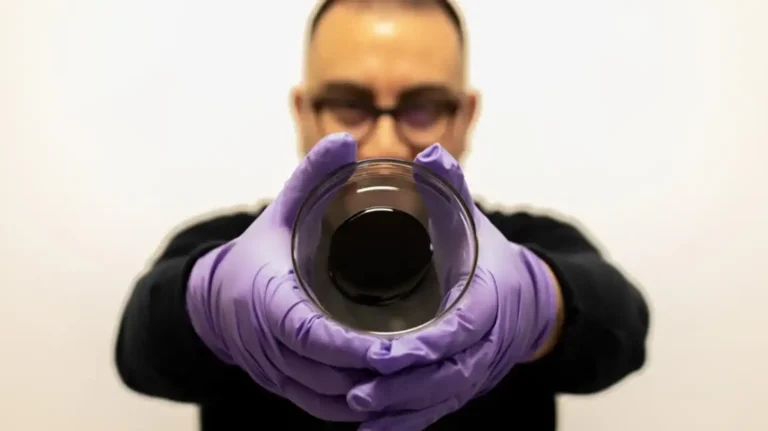A research team from Swansea University and King’s College London has, in collaboration with scientists in Chile, designed a prototype for a new type of self-healing asphalt that can mend its own cracks without the need for maintenance or human intervention.
Potholes and road maintenance currently costs the UK government an estimated £143m per year – a figure that a recent PAC report stated is actually underestimated – has left Britain’s roads in dire need of repair.
The research team, in pursuit of a solution to this problem, has shown in laboratory experiments that its asphalt material completely healed a microcrack on its surface in less than an hour.
Road cracking was reversed after bitumen in the asphalt hardened when exposed to the air, oxidising to seal the cracks and create more durable and sustainable roads.
This happened after the team incorporated tiny, porous materials produced by plants that are known as spores.
These spores are filled with recycled oils, which are released when the asphalt begins to crack, helping to reverse the process.
READ MORE: Roads minister’s Derby visit follows £1.6bn boost to fix Britain’s roads
During the research, a type of AI known as machine learning was used to study organic molecules in complex fluids like bitumen.
The team developed a new data-driven model to accelerate atomistic simulations, advancing research into bitumen oxidation and crack formation.
They are also collaborating with Google Cloud to simulate the behaviour of the bitumen on a computer.
Expert in computational chemistry at King’s College London Dr Francisco Martin-Martinez said: “In our research, we want to mimic the healing properties observed in nature.
“For example, when a tree or animal is cut, their wounds naturally heal over time, using their own biology.
“Creating asphalt that can heal itself will increase the durability of roads and reduce the need for people to fill in potholes.
“We are also using sustainable materials in our new asphalt, including biomass waste. This will reduce our dependence on petroleum and natural resources.
“Biomass waste is available locally and everywhere, and it is cheap. Producing infrastructure materials from local resources like waste reduces the dependence on petroleum availability, which helps those areas of the world that have limited access to petroleum-based asphalt.”
Achievements and innovations in road maintenance will be recognised and celebrated at the fourth annual CiTTi Awards on 25 November 2025 at De Vere Grand Connaught Rooms in London. Visit www.cittiawards.co.uk to learn more about this unmissable event for the UK’s transportation sector!





